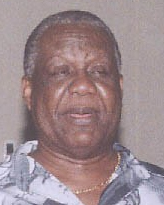Food For the Poor (FFP) and the Roetheli Lil’ Red Foundation recently completed an $88.8M housing and sanitation project that will benefit 280 residents of Siriki, a small village located along the Pomeroon River in Region 2.

According to a Govern-ment Information Agency (GINA) news release, the charity collaborated with the Foundation, an organisation based in Michigan, United States to complete the project, which is titled the “Lil’ Red Village II Siriki-New Haven Project.” Executive Director FFP Leon Davis, creator of the Foundation Joseph Roetheli and Region Two Chairman Ali Baksh formally opened the new community. The project started on October 6 and was completed on November 28. GINA said the project entailed building 70 wooden houses with 70 sanitation blocks, a school (School of Hope), a community centre (New Haven Community Centre) and a store house (New Haven store house) in the small community. It also involved building a well and providing a submersible pump to distribute potable water to residents.
According to GINA, the Foundation said Siriki residents will benefit tremendously from the project since the community comprises mainly poor farmers and boat builders who live in low land areas that are prone to floods. FFP said the highland of Siriki Sand is less susceptible to flooding than the lowlands and as such there is less disease associated with flooding. In addition to the new well the organisations built a piping system to ensure that residents have access to potable water during a specified time of the day.
This will further ease their burden of carrying water considerable distances.
GINA said to further boost aid and foster a better relationship, FFP will be collaborating this year with the Ministry of Housing and Water to enhance housing and water standards in communities.
The charity is encouraging other charitable NGOs to come on board and assist communities that do not have access to housing and water services. Since its establishment in 1991, FFP has been serving the needs of Guyanese by extending its reach to several communities including rural and interior locations where assistance is most needed.
It has also ventured into areas such as skills and vocational training and housing.






